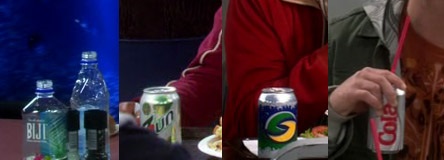original works fixed in a tangible form
ex. it is not ideas, theories, facts
or news
why protect it?
an incentive to be creative and a way
to protect the creator's ability to profit
how is it protected?
by granting monopoly rights for a fixed
period of time
copyright, trademark, patent
new technologies are stretching intellectual
property laws
used to protect distinctive words, symbols,
devices that clearly identify a business firm and its products (and its
also a form of consumer protection)
seeks to reduce the likelihood of confusion
the first person to fix the trademark
controls it (not the first to register)
however, to enforce the trademark (sue
for infringement) the trademark must be registered
in addition, the holder must make an
effort to prevent unauthorized use (ex. Spam)
trademarks exist only with respect to
some commercial activity
trademarks have no set lifespan (first
time for 5 years, renewals for 10 years)
can lose a trademark by not using it
or not protecting it (typically 2 years)
can be a word(s), slogan, title, design,
color, sound, device, style, etc. as long as it is distinctive (doesn't
apply to parody)
the same trademark used to be able to be used if the similarity was not likely to cause consumer confusion (it used to be that it only applied to the same industry/field/product)
now, trademark holders have a greater ability to limit "dilution" of the trademark


when it is fixed in a tangible form
have the option to register
search the copyright office files
the © is not required, so the lack
of a symbol doesn't mean it's not registered
can't sue for infringement without registration
registration is simple and the fee is
small
life of the author plus 70 years
if a work for hire (a company holds the
copyright) 95 years from publication or 120 years from creation, whichever
is shorter
once a copyright expires, the work goes
into the public domain
these rights can be sold (and bought),
traded, inherited, leased, licensed etc. (like property)
thus, permission is required to use
layers of rights (ex. music)
publishing rights vs. performance rights
there is no protection for federal publications
(they belong to the public)
titles, slogans, phrases (but if used
in commercial activity...)
News events - can't copyright facts or
the substance of the story (but can copyright your presentation of those
facts)
implications for historical movies, biographies
etc.
substantial similarity
was the "fundamental essence"
of the work appropriated?